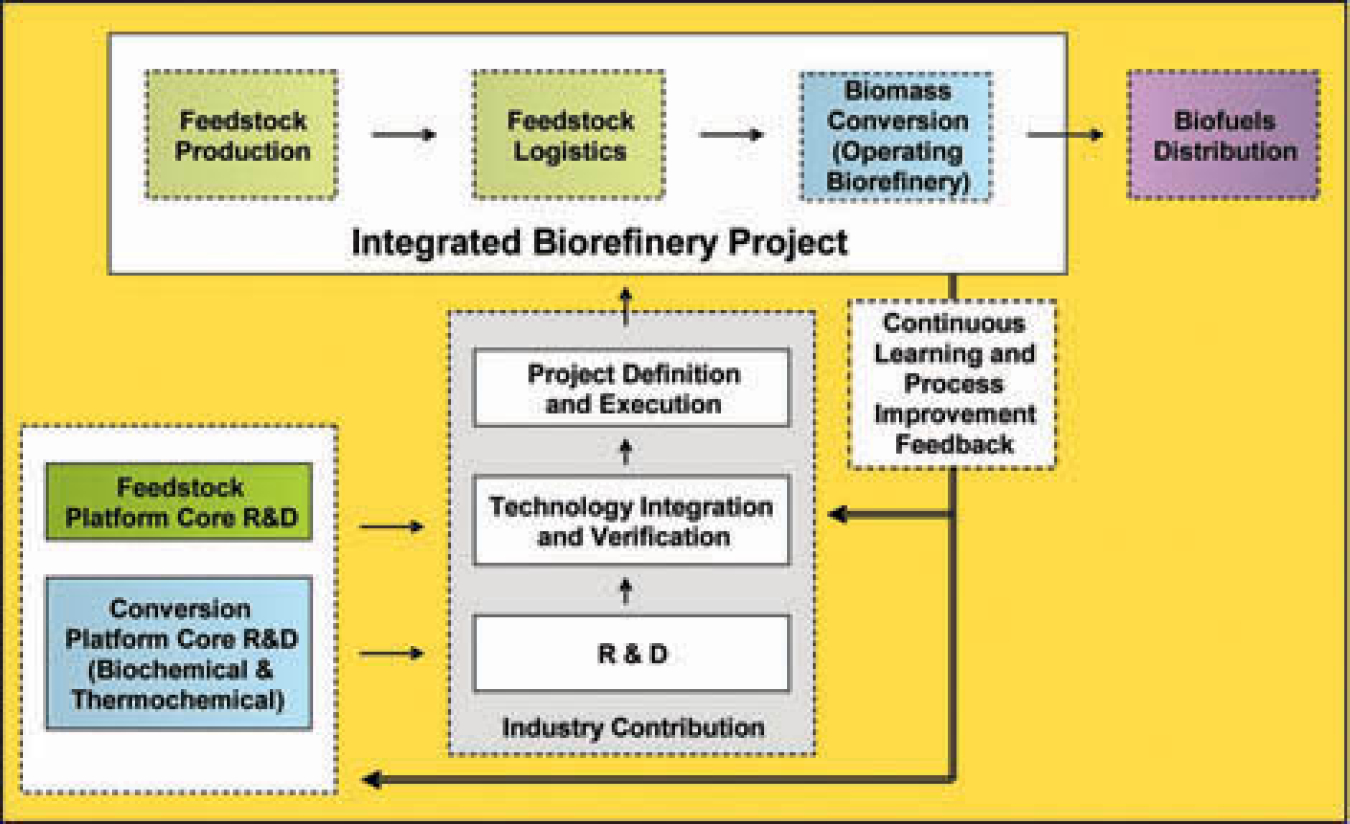The development of the integrated biorefinery was identified as crucial part of achieving alternative fuel production goals. Throughout its stages of development, the integrated biorefinery will utilize input from all of the other platforms as well as the existing biofuels industry. The research and development of feedstocks and the conversion platforms will allow future integrated biorefineries to continually increase its diversity and complexity further increasing effectiveness, efficiency, and productivity.
The process of developing an integrated biorefinery is unique because of the new technologies involved as well as the integration and bundling of these technologies. A detailed and realistic project scope and expectations is critical to the successful deployment of an integrated biorefinery.
Obtaining the proper permits can be a complicated matter. Each integrated biorefinery is unique and in most cases do not necessarily conform to an existing industrial footprint. This, coupled with local and regional concerns, will dictate the permitting required and the process to be followed. Ample time must be dedicated to these important issues.
Further, the U.S. Department of Energy cannot take or support any actions that could be characterized as an irreversible and/or irretrievable commitment in advance of completing the National Environmental Policy Act (NEPA) review process. Consequently, some additional requirements are imposed on projects supported by the Office.
The performance goal for the Bioenergy Technologies Office is to focus on developing advanced technologies for integrated biorefinery concepts. This will be achieved through a focus on the demonstration and validation of efficient processes for producing biofuels from corn fiber, agricultural residues, and forest products residues as well as various other energy crop feedstocks being researched.
There are several significant barriers to the realization of a self-sufficient biorefinery industry. The technological challenges are being addressed in the core R&D elements of the Office, then validated and demonstrated with cost-share partners (industry, universities, etc.). Other challenges that the integrated biorefinery industry faces include:
- Political and market resistance
- Lack of supporting infrastructure (including feedstock, biofuels, and vehicle infrastructure)
- Market development and penetration issues.
Overcoming these barriers will require efficiency improvements throughout the supply chain along with supporting analysis and cost-shared demonstration projects.


